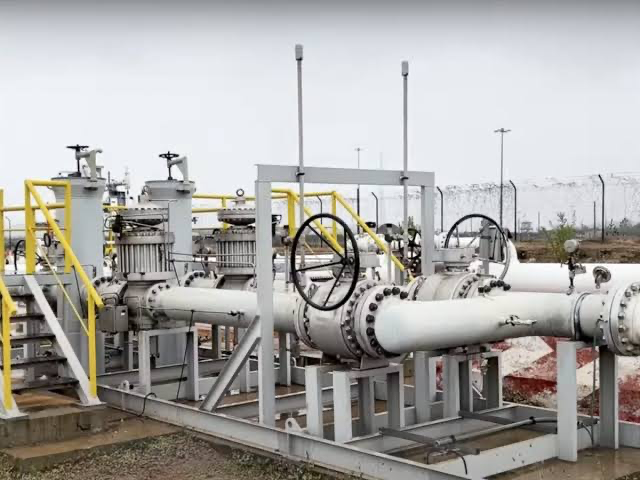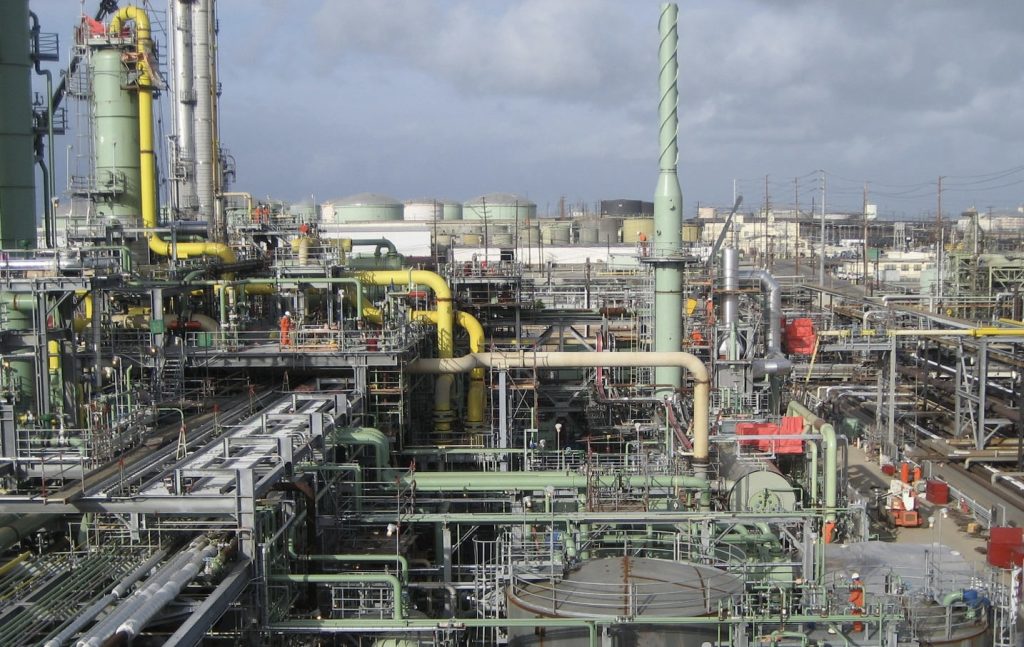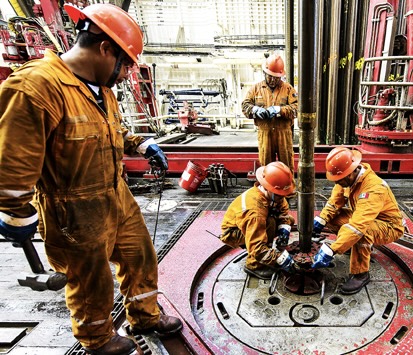KEY POINTS
- Angola produces 1.5 million barrels daily, securing its place as Africa’s second-largest oil producer after Nigeria, thanks to advanced offshore operations and international partnerships.
- Investments in deepwater exploration, infrastructure modernization, and tax incentives position Angola to attract foreign direct investment and stabilize oil production.
- Angola addresses environmental concerns with sustainable practices, balancing economic growth and marine ecosystem preservation in its oil sector.
Angola stands as one of Africa’s most prominent oil producers, a status it has cultivated through decades of exploration and strategic development. Oil dominates the Angolan economy, accounting for over 90 percent of the country’s export revenue and approximately 40 percent of its GDP.

As the second-largest oil producer in sub-Saharan Africa, Angola is critical to the continent’s energy landscape. Its production levels, advanced offshore operations, and strategic partnerships with international oil companies (IOCs) cement its position as a leading player in the African oil industry.
Africa’s oil landscape
Africa’s oil sector is characterized by diverse players, including Nigeria, Algeria, and Libya, which have historically led production. However, fluctuating oil prices, aging infrastructure, and environmental concerns challenge the industry’s growth (Oil and Gas in Africa).
Angola’s strategic location and established reserve position it to drive growth in this competitive landscape. Emerging trends, such as technological advancements in exploration and increased investments, further underscore the importance of Angola in shaping Africa’s energy future (WorldBank, 2024).
Let’s explore Angola’s growing role in African oil production, highlighting its current production levels, investment opportunities, and challenges. Angola’s advancements in oil exploration, infrastructure development, and commitment to sustainability have significant implications for the continent’s economic development and energy security.
Angola’s oil production
Current production levels
Angola produces approximately 1.5 million barrels of oil per day (bpd), making it the second-largest oil producer in Africa after Nigeria (WorldBank, 2024).

The country’s production largely relies on its extensive offshore fields, which contribute significantly to global energy markets. Despite facing challenges such as aging oil fields and fluctuating global prices, Angola remains a key player in ensuring a steady supply of oil.
Its ability to maintain stable production levels has helped it attract investments from major oil companies, bolstering its economic resilience and international reputation.
Production growth
Angola’s oil production growth is driven by technological advancements and new discoveries in deepwater and ultra-deepwater fields. Recent investments in offshore exploration have yielded promising results, with fields like Kaombo and CLOV contributing to the country’s production capacity.
The government’s ongoing reforms, such as tax incentives and regulatory streamlining, aim to attract further investment. These efforts are projected to stabilize and potentially increase production levels, ensuring Angola’s competitive edge in the African oil market.
Key oil fields
Angola’s oil production is anchored by key fields such as Girassol, Dalia, and Pazflor, operated by international oil majors like TotalEnergies and BP. The Girassol field, discovered in 1996, remains one of Angola’s most productive offshore sites. Dalia and Pazflor, both located in Block 17, exemplify Angola’s deepwater production capabilities. These fields not only highlight Angola’s resource wealth but also its technical expertise in managing complex offshore operations.
Investment opportunities
Angola’s oil industry presents lucrative opportunities for investors, particularly in exploration, production, and infrastructure development. The government’s privatization initiatives, including plans to partially privatize Sonangol, the national oil company, are designed to attract foreign direct investment (FDI). Additionally, Angola’s strategic location along major shipping routes offers logistical advantages for export-focused operations. With substantial untapped reserves and supportive government policies, Angola is an attractive destination for international oil companies seeking to expand their African portfolios.
Infrastructure challenges
Despite its potential, Angola’s oil industry faces significant infrastructure challenges. The country’s aging pipelines, storage facilities, and transportation networks hinder efficient production and export operations. To address these issues, Angola has prioritized investments in infrastructure modernization.
Collaborative efforts with private investors aim to build new pipelines, enhance refining capacity, and develop export terminals. Overcoming these challenges is critical for Angola to maximize its production capacity and maintain its competitiveness in the global oil market.
Environmental concerns
Environmental sustainability is a growing concern in Angola’s oil sector. Offshore operations, while lucrative, pose risks to marine ecosystems, and oil spills have raised alarms among environmental advocates. The government and international oil companies are investing in sustainable practices, including advanced spill-response systems and carbon reduction technologies. Striking a balance between economic growth and environmental responsibility is essential for the long-term viability of Angola’s oil industry.
Total’s operations in Angola
TotalEnergies plays a pivotal role in Angola’s oil production, accounting for nearly half of the country’s output. The company’s investments in fields like Kaombo and CLOV highlight its commitment to innovation and sustainability.

Total’s integration of advanced drilling technologies and renewable energy initiatives demonstrates a forward-thinking approach, setting a benchmark for the industry. This partnership with the Angolan government underscores the importance of collaboration in achieving mutual economic and environmental goals.
Eni’s activities in Angola
Italian oil major Eni has made significant strides in Angola’s oil sector, focusing on exploration and sustainable production. The company’s operations in Block 15/06 have been particularly successful, with discoveries such as Agogo and Ndungu enhancing Angola’s reserves.

Eni’s emphasis on reducing greenhouse gas emissions through carbon capture technologies positions it as a leader in sustainable oil production.
Sonangol’s role in Angola’s oil industry
Angola’s national oil company, Sonangol is central to the country’s oil industry. The company manages upstream and downstream operations while fostering partnerships with international players.
Sonangol’s ongoing restructuring efforts, including plans to divest non-core assets, aim to improve efficiency and transparency. Its strategic role in negotiating contracts and managing resources makes it a cornerstone of Angola’s oil sector.
Regional implications
Impact on African oil production
Angola’s growing oil production has significant implications for Africa’s energy landscape. As a leading exporter, Angola contributes to regional energy security and economic integration. Its advancements in exploration and infrastructure set a precedent for other African producers, fostering competition and collaboration.
Competition with other African producers
Angola faces stiff competition from Nigeria, Algeria, and Libya, which also boast substantial reserves and production capabilities. However, Angola’s focus on offshore exploration and deepwater projects gives it a competitive edge. By leveraging technological innovation and strategic partnerships, Angola aims to maintain its position as a top producer in Africa.
Opportunities for regional cooperation
Regional cooperation offers significant opportunities for Angola’s oil industry. Joint ventures, knowledge sharing, and infrastructure projects can enhance efficiency and reduce costs. Collaborative initiatives, such as cross-border pipelines and regional refining hubs, could strengthen Angola’s role as a leader in Africa’s oil market.
Angola’s oil industry is a cornerstone of its economy and a critical component of Africa’s energy landscape. With substantial reserves, strategic investments, and a commitment to innovation, Angola is poised to expand its influence in African oil production.
The future of Angola’s oil industry lies in sustainable practices, infrastructure development, and regional cooperation. By addressing challenges such as aging infrastructure and environmental concerns, Angola can unlock its full potential.
Angola’s growing role in African oil production is a testament to its resource wealth and strategic vision. By balancing economic growth with sustainability, Angola has the opportunity to drive energy security, regional development, and long-term prosperity for the continent.



